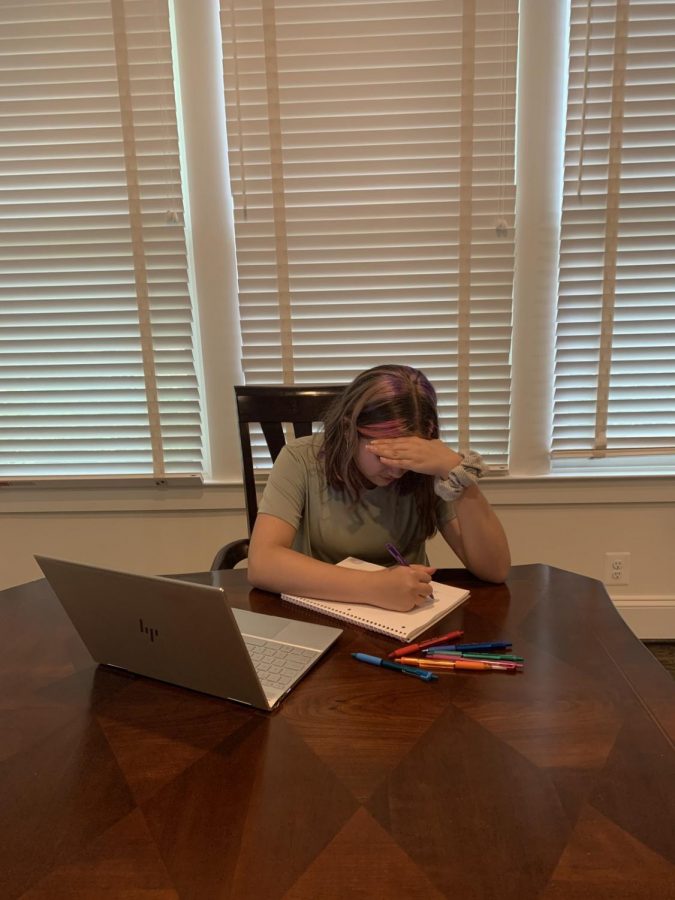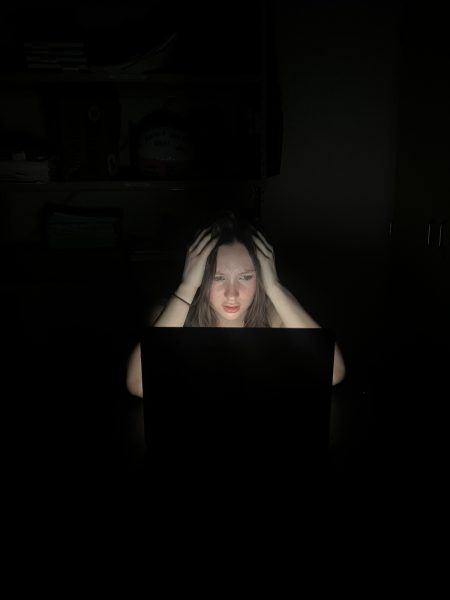The treatment was effective but the patient died
Along with a new way of living due to the pandemic comes a new way of learning: virtual learning. In general, this is something that many students do not have much experience with. Now, instead of going to school every morning, they are on their laptops for most of the day. They are missing out on many things such as seeing their friends and interacting with other people, which can lead to depression in some students. Many are struggling with this school year, therefore we need to re-open schools for children’s mental health.
If bars are opening up, why aren’t schools? Education is a staple in students’ lives, but government officials have put bars, restaurants and gyms at a higher, more important level. COVID-19 generally seems to affect older people rather than the younger generation. They are less susceptible to getting the virus, and therefore should be going back to school.
According to the New York Times, children are 24 percent of the US population, but only make up two percent of all Covid-19 cases.
How are we allowing this to happen? School is crucial and is much more important than opening up gyms and bars. Our students are the future of this generation and it is key that we allow them to learn to their best abilities. Government officials are prioritizing drinking rather than opening up schools and allowing kids to learn.
“I’d rather have bars close and schools open than the other way around,” Dr. Ashish Jha, who is dean of the Brown University School of Public Health, said in a recent interview with “Good Morning America.”
The spread of the pandemic has brought on yet another challenge: students’ mental health. The all-online school year has deprived kids of social interaction with others. Students have been heavily impacted and many are struggling with school.
“Nearly three in 10 parents said their child is experiencing emotional or mental harm because of social distancing and school closures,” according to the Gallup poll.
With online school, it’s very easy to become distracted, and many students feel unmotivated to continue doing their schoolwork. They struggle with time management and the workload given by all their teachers.
Yes, COVID-19 can kill people, but so can suicide. In fact, suicide is the second leading cause of death for teens ages 12 through 18, according to the Jason Foundation.
Isolation without social interactions could lead to social anxiety and other mental health challenges, based on the Newport Academy.
“Each day in our nation, there are an average of over 3,703 [suicide] attempts by young people grades nine through 12,” said the Jason Foundation, whose mission is aweareness to teen suicide. “More teenagers and young adults die from suicide than from cancer, heart disease, AIDS, birth defects, stroke, pneumonia, influenza and chronic lung disease, combined.”
Mental health is crucial for our students and it’s important that we address it. Without having stable mental health, it can be very hard for your body to function. It also factors into how our body handles stress, and can affect the choices we make. Depression is correlated with a higher risk of strokes, diabetes, and heart disease.
Now with school being all virtual many students are stuck at home all day, staring at a screen. While this may seem harmless, a certain amount of screen time could be damaging our eyes permanently.
As the sun goes down, our body begins to produce a hormone called melatonin which helps our bodies fall asleep. Many people use their phones before bed to check their emails, read the news, look at social media and more. Due to the blue light emitting from our screens, that process is disturbed.
A study performed by Harvard Medical School showed that people who read from an ebook before bed had a harder time falling asleep, and produced less melatonin.
There has been growing concern that spending too much time on screens could be affecting students’ brains. A study that is currently being conducted by the National Institute of Health has seen results showing that kids who spend more than seven hours on a screen have differences in their cerebral cortex such as premature thinning, than children who don’t. This an ongoing study so no final conclusions can be drawn. Any changes to someone’s brain could likely be significant, so we should be extremely careful with how much time we spend on screens, and not be reckless.
What is the rationale behind not opening schools? It was to decrease the spread of COVID-19. However, kids are required to wear masks and social distance in school. These rules have to be followed or else children will be sent home. Conversely, bars are not following these rules. Many can be seen waiting in a line to get into a bar not standing six feet apart and most not wearing a mask. Where are society’s priorities? Those children who don’t feel comfortable going into school have the option to opt out and still do online classes from home. The benefits outweigh the risks, and by opening schools, children’s mental health could improve tremendously with social interactions and a break from their screens.













